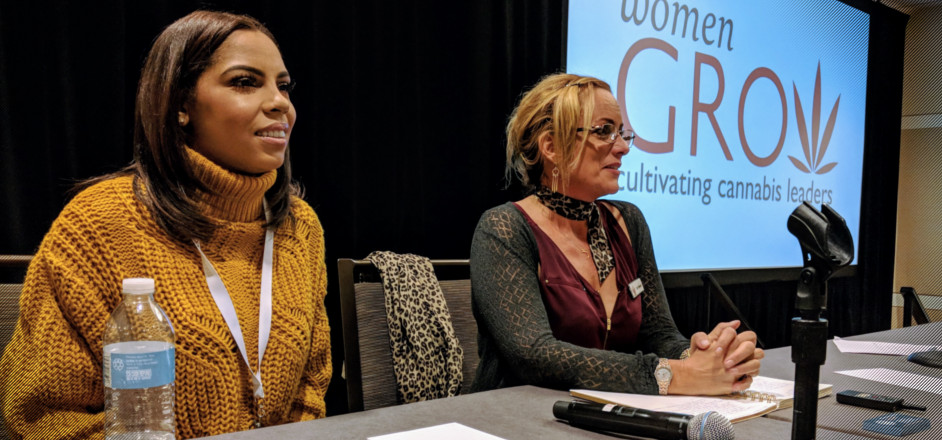A decade in the weed world is like a century anywhere else. Starting a dispensary is waaaay different now from how it was a decade ago. It’s almost like the difference between opening a disco in Warsaw under communism and then opening it after the Berlin Wall fell. Or maybe the opposite, depending on your feelings about the communism.
In the beginning, before the green rush took off, before weed-friendly governors and a $7 billion industry, cannabis stores used to be opened quietly and discreetly by weed-loving Phish kids who sold their RV to rent old warehouses on the edge of town.
Dori Edwards, for example, is a former hippie who lived in her car in a National Forest. Today, when she surveys the pot scene – for example, at the bustling, professional, swag-rich and networking-heavy Women Grow Leadership Summit in Denver — she's floored.
“It looks nothing like it looked eight years ago,” Edwards says. “Eight years ago it was underground.”

After Michigan passed its Medical Marihuana Act in 2008 — so long ago they spelled things differently — she saw a need for safe, quality cannabis for med patients. She opened GanjaMama’s with only as many customers as she could fit in a living room. She didn’t even want to hang a sign up because it would tell the SWAT team where to go.
Hard numbers are scarce, but there are more dispensaries than ever. In Colorado, there were 460 med and rec dispensaries in 2014; today, there are more than 1,000. And they're flashier, bigger and more open than ever.
Hope Wiseman, for example, is cutting the ribbon on a pot shop in a Maryland suburb of Washington this March, it will be on national TV. At 25, Wiseman is a former Atlanta Falcons cheerleader, worked in investment banking, and is one of the stars of the E! TV reality show WAGS Atlanta — Wives and Girlfriends of athletes. (She’s single, but has dated football players.) She's said to be the youngest dispensary owner with darker skin in the country. And she’s coming in as big as Edwards came in small.

Fans asking for selfies follow her around. A video camera hovers nearby. She glows; her number of Instagram followers seems to hover over her head. When she dies she won’t be reincarnated, she’ll be re-tweeted.
Where Edwards did it all herself, Wiseman has worked with lawyers, consultants and lobbyists.
While Edwards did it in a legal gray area – she operated her dispensary as a “club” for which you needed to buy memberships – Wiseman is dealing with hundreds of pages of detailed regulations on everything from architecture to accounting practices.
While Edwards did it for a $15,000 loan – which she was able to pay back within three months – Wiseman is sinking a couple million dollars into her shop.
None of this big money stuff happened in 2010. Back then, about the only time you saw dispensary owners on TV was when they were being raided by the feds.
All of this is just another reminder that ganja is going nuts now. It's not just that the strains’ potency or the THC contents have changed, but the whole culture. In 2018, during a single conversation at this cannabis conference, you will hear many things that would have gobstopped you ten years ago – a woman consulted a nun who grows cannabis on the best strain to use for spiritual development during yoga with her wife, who is a veteran. These roll past you now, unremarkable. Or just noticing that Edwards is a flower child and Wiseman has dark skin, and remembering that hippies and blacks used to run the pot game underground – now, they’re on the up and up.
It’s a confirmation:
Nothing grows faster than a weed.



Leave a Reply